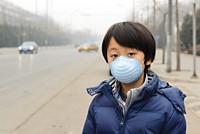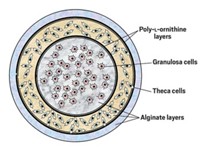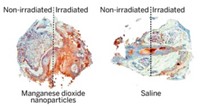Advertisement
Grab your lab coat. Let's get started
Welcome!
Welcome!
Create an account below to get 6 C&EN articles per month, receive newsletters and more - all free.
It seems this is your first time logging in online. Please enter the following information to continue.
As an ACS member you automatically get access to this site. All we need is few more details to create your reading experience.
Not you? Sign in with a different account.
Not you? Sign in with a different account.
ERROR 1
ERROR 1
ERROR 2
ERROR 2
ERROR 2
ERROR 2
ERROR 2
Password and Confirm password must match.
If you have an ACS member number, please enter it here so we can link this account to your membership. (optional)
ERROR 2
ACS values your privacy. By submitting your information, you are gaining access to C&EN and subscribing to our weekly newsletter. We use the information you provide to make your reading experience better, and we will never sell your data to third party members.
Materials
Alumina Coating Tames Nanotube Toxicity
Mice show less lung damage after inhaling carbon nanotubes coated with aluminum oxide
by Elizabeth K. Wilson
October 13, 2014
| A version of this story appeared in
Volume 92, Issue 41
Coating carbon nanotubes with a layer of aluminum oxide reduces the nanomaterial’s propensity to induce pulmonary fibrosis in mice, new research shows (PLOS One 2014, DOI: 10.1371/journal.pone.0106870). Multiwalled carbon nanotubes (MWCNTs) can be long and fibrous and lodge in the lung tissue of animals when inhaled. This can cause pulmonary inflammation and fibrosis similar to that seen after exposure to asbestos. As industrial and biomedical applications for nanotubes increase, so will the potential for human exposure. Previous research has shown that attaching hydrophilic organic chains to carbon nanotubes reduces their toxicity, perhaps by breaking the tubes apart into shorter segments. James C. Bonner of North Carolina State University and colleagues have now used atomic layer deposition techniques to coat MWCNTs with Al2O3. Human cell cultures dosed with coated nanotubes produced lower levels of certain immune substances than the uncoated ones. The researchers also found that mice inhaling the coated nanotubes had lower rates of pulmonary fibrosis than their counterparts inhaling uncoated nanotubes. However, there were no differences in levels of pulmonary inflammation. “The aluminum oxide coating doesn’t eliminate health risks related to MWCNTs,” Bonner says, “but it does lower them.”





Join the conversation
Contact the reporter
Submit a Letter to the Editor for publication
Engage with us on Twitter